Observational skills Normal Science Worksheets for Ages 5-6
11 filtered results
-
From - To
Enhance your child’s observational skills with our engaging Normal Science Worksheets designed specifically for ages 5-6. These worksheets encourage young learners to explore their surroundings, fostering curiosity and critical thinking. Through fun activities and illustrated exercises, children will learn to observe details, make comparisons, and draw conclusions about the world around them. Ideal for at-home learning or classroom use, these worksheets promote essential skills for future scientific inquiry. Our resources are crafted to make learning enjoyable and interactive, helping children develop a solid foundation in science while sharpening their abilities to notice and interpret various stimuli in their environment. Download now!
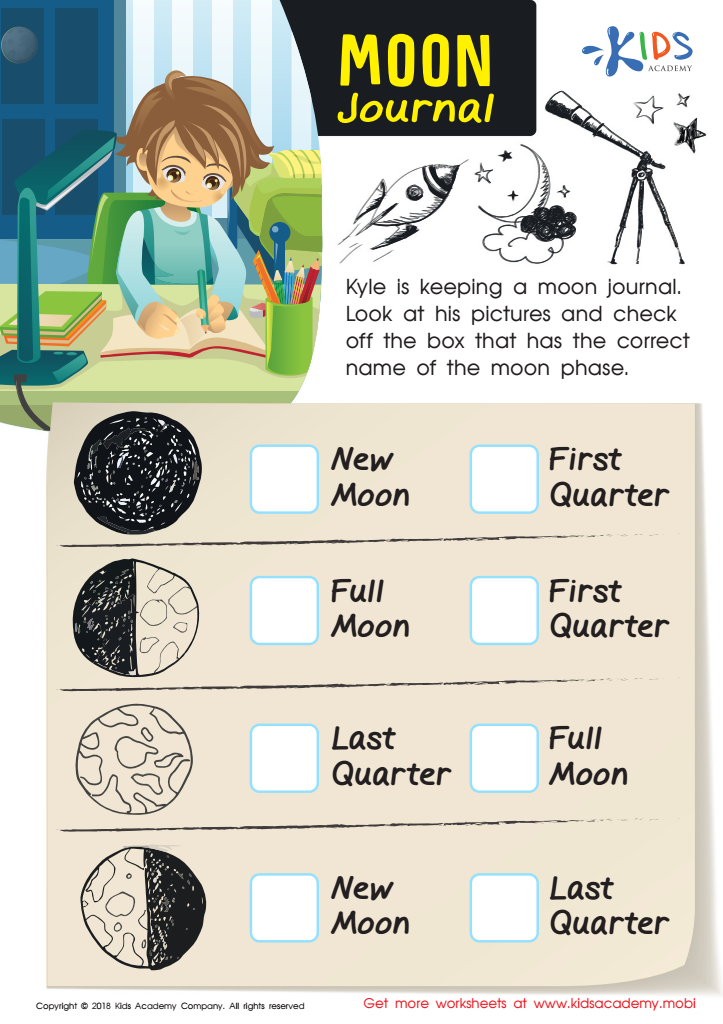

Moon Journal Worksheet
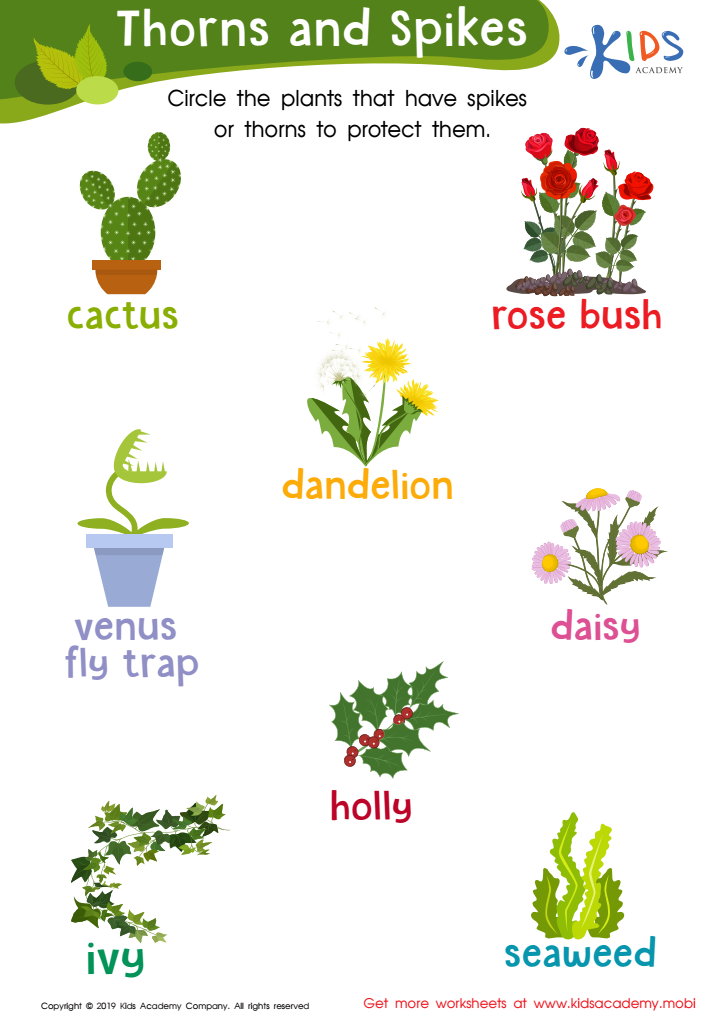

Thorns and Spikes Worksheet
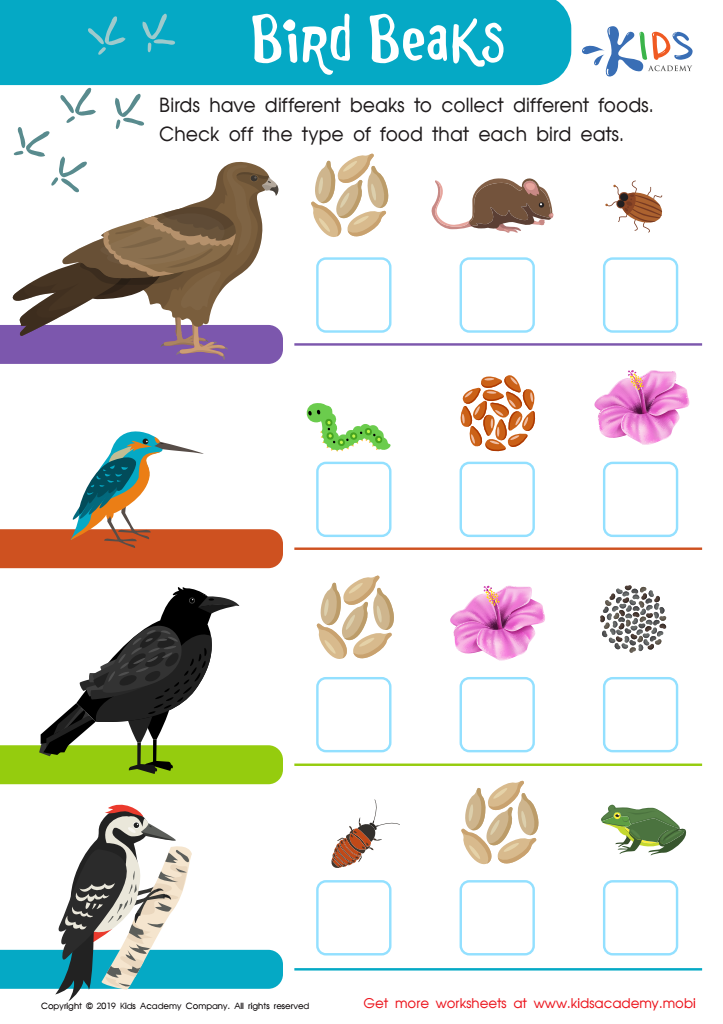

Bird Beaks Worksheet
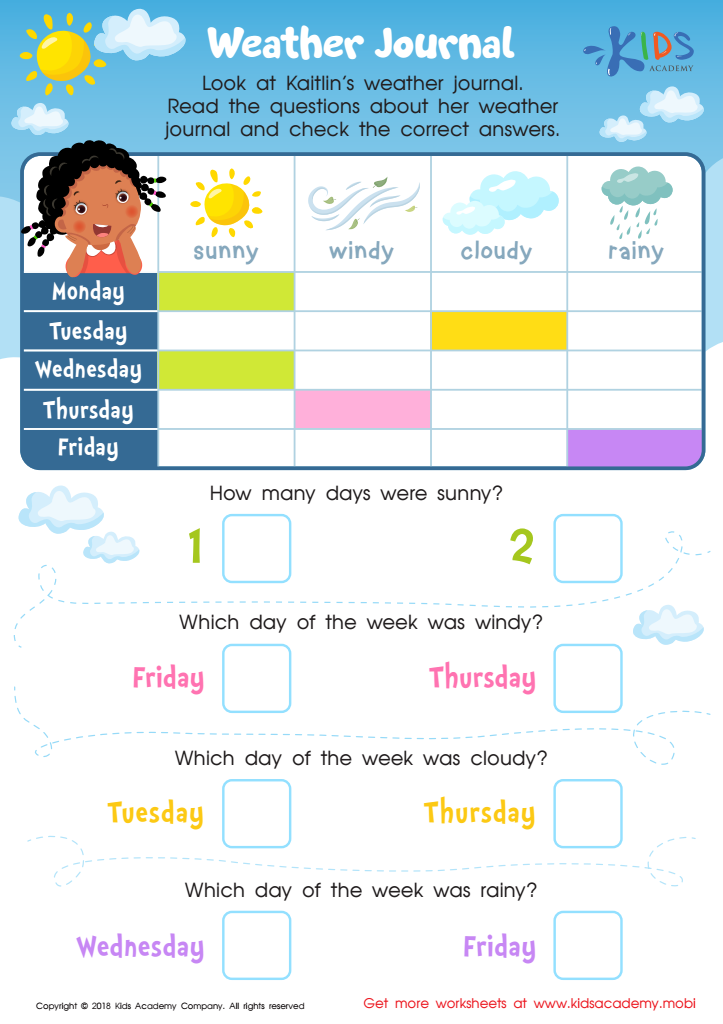

Weather Journal Worksheet
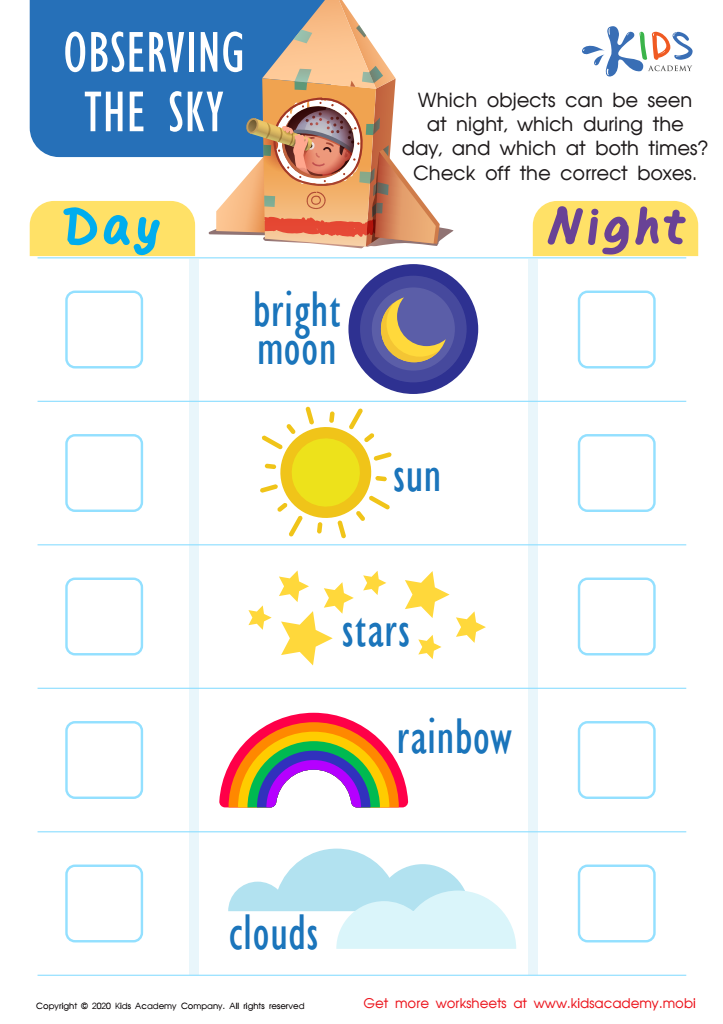

Observing the Sky Worksheet
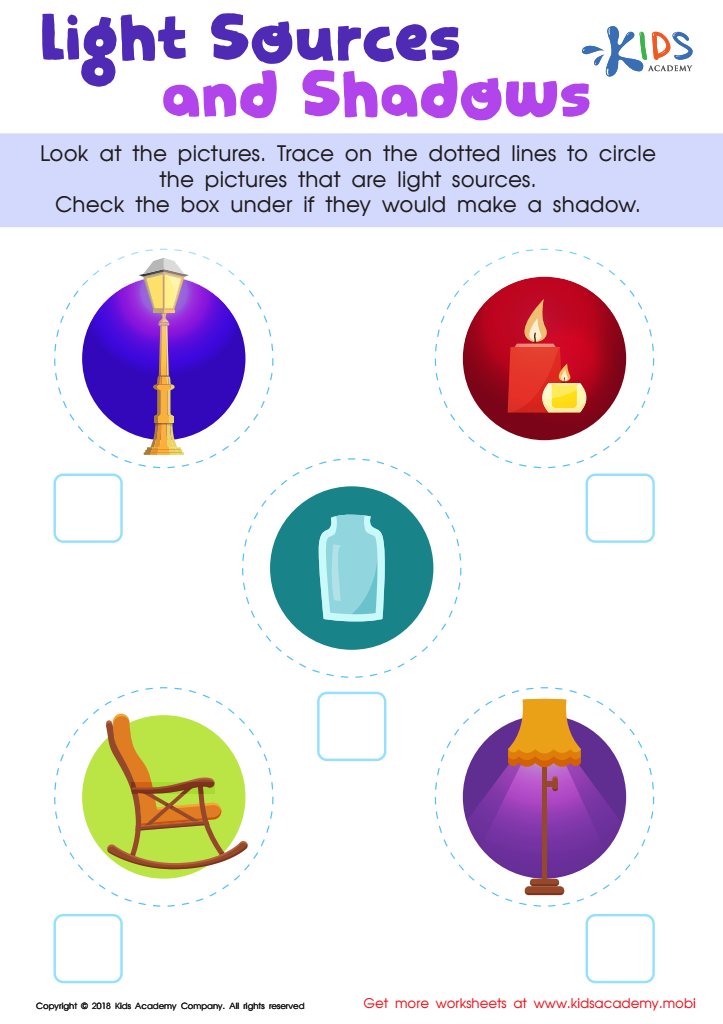

Light Sources and Shadows Worksheet
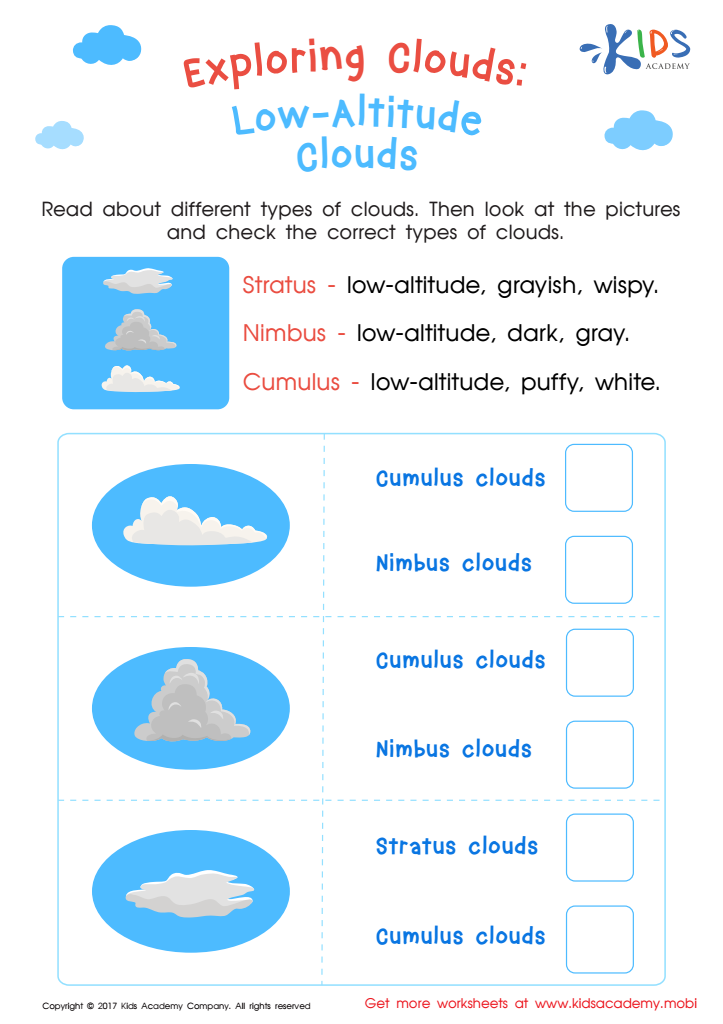

Exploring Clouds: Low Altitude Clouds Printable
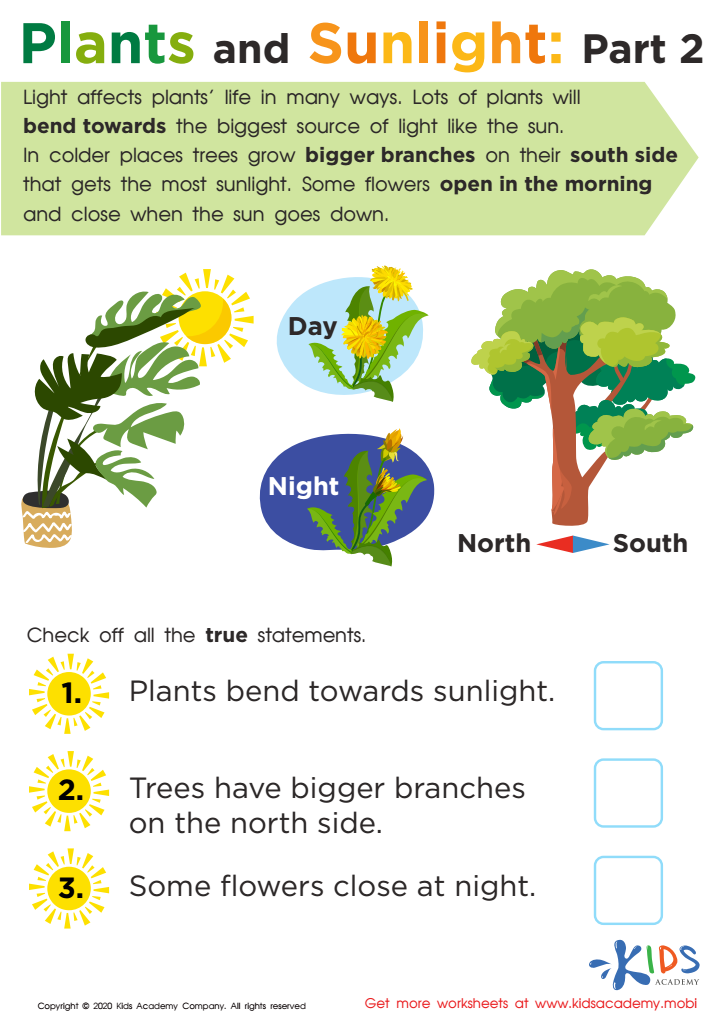

Plants and Sunlight: Part 2 Worksheet
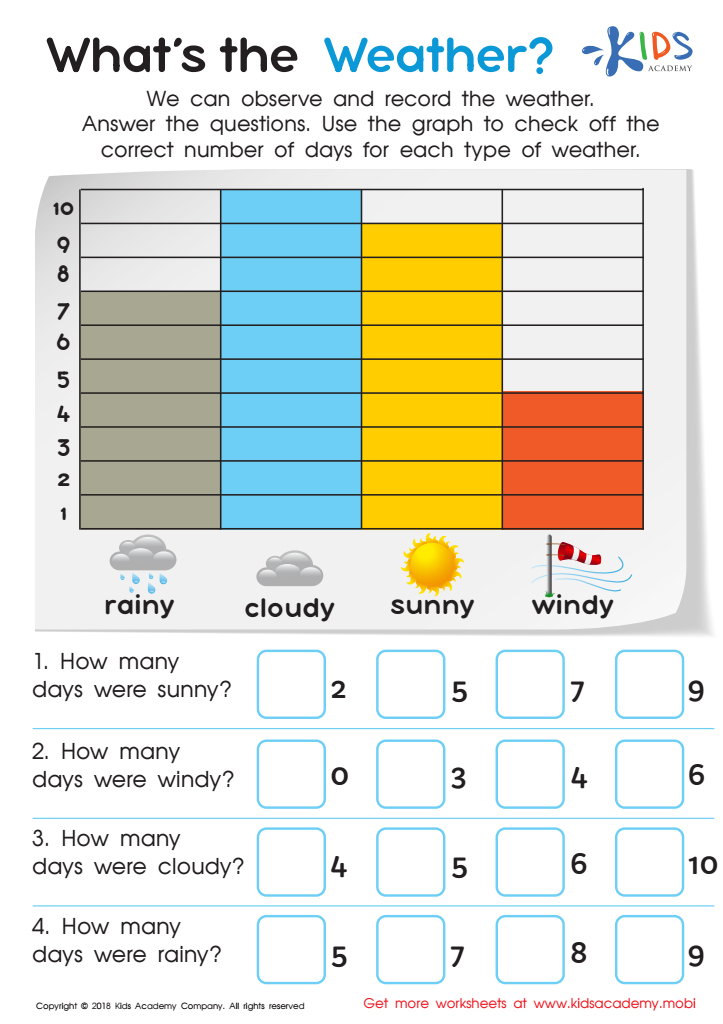

What's the Weather? Worksheet
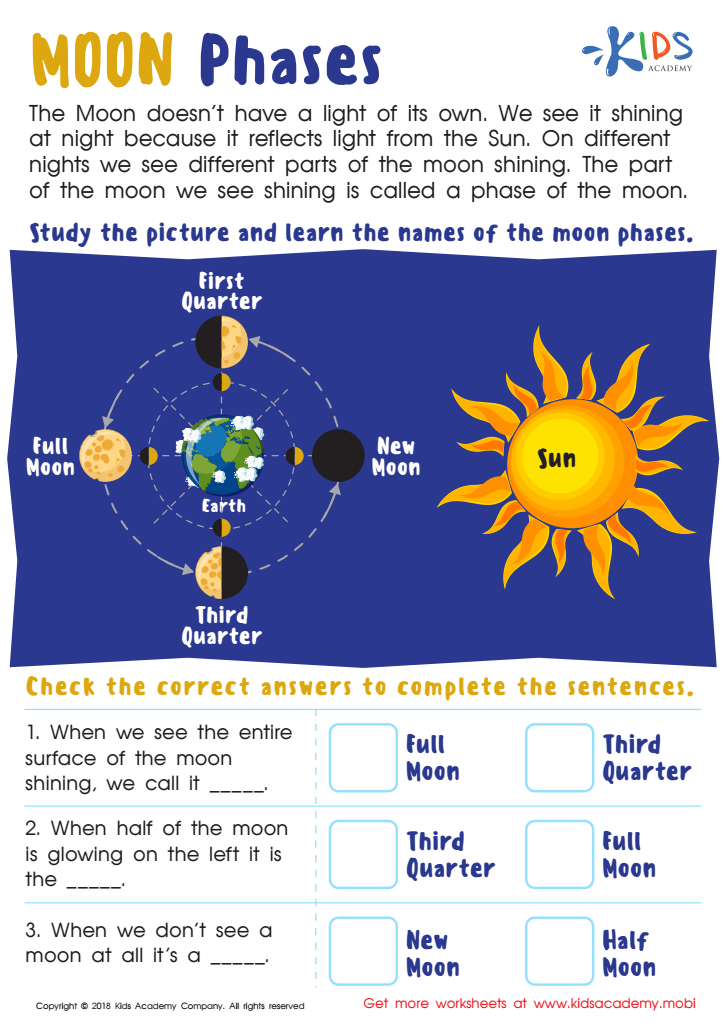

Moon Phases Worksheet


Animals and Plants: Assessment 1 Worksheet
Observational skills in young children, particularly ages 5-6, are crucial for fostering cognitive development and scientific thinking. At this stage, children are naturally curious, and nurturing their observation skills can cultivate a lifelong appreciation for science and learning. By focusing on normal science—observing, questioning, and forming hypotheses—children learn to engage with the world around them critically and creatively.
Parents and teachers should care about these skills because they are foundational to problem-solving and critical thinking. Observational skills enable children to notice details in their environment, recognize patterns, and ask meaningful questions—key components of scientific inquiry. This lays the groundwork for inquiry-based learning, where children actively participate in their education, rather than passively absorbing information.
Moreover, strong observational skills contribute to improved literacy and numeracy! Children who observe closely are better equipped to describe their experiences verbally and in writing. They tend to understand mathematical concepts more deeply through pattern recognition and spatial awareness. By fostering observational skills, adults support holistic development in children, promoting emotional intelligence, curiosity, and analytical thinking. Hence, encouraging observational skills in early education is essential for developing knowledgeable, inquisitive, and engaged future learners.
 Assign to My Students
Assign to My Students















